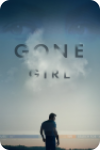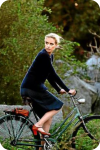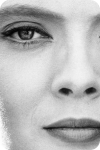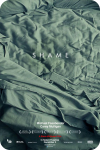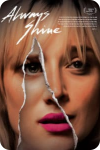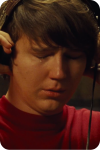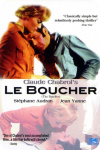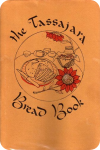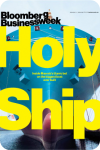Set primarily in a highly selective performing arts high school in the 1980s, students and teachers vie for dramatic and egotistic pre-eminence in a simultaneously communal and cut-throat atmosphere. This is a slick ride and a queasy, guilty pleasure with a potent twist that makes you question any weakness for nostalgia you may have.
Books & Essays
Trust Exercise
By Susan Choi
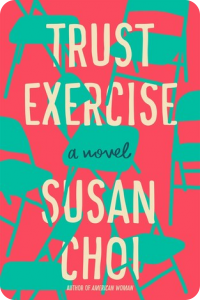
The Gifted School
By Bruce Holsinger
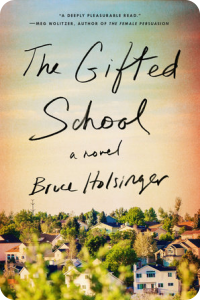
The Gifted School is a sharp, soapy novel that takes a hard look at notions of privilege through the lens of four families in fictional Crystal, Colorado--a beautiful, Boulder-like town of high incomes, conspicuous fitness, and good intentions. While Rose, a tightly wound pediatric neurologist married to an under-achieving novelist, has an impressive career, thriving daughter, and a circle of good friends, she feels middling amid the easy affluence and achievement of her surroundings. She, and most of the other parents in Crystal, are therefore entranced, and possibly possessed, when plans for a new highly selective school are announced.
Schemes abound, hijinks ensure, and laughs and cringes proliferate as these parents and their kids try to figure out who they are and where they fit in when everyone is special.
Liberalism's Crisis, Bubbles, and Ghosting
Mark Lilla / Thomas Frank
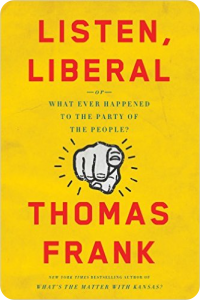
Mark Lilla, professor of humanities at Columbia, has offered his post-election reflections of what identity politics has wrought. In summation, they have undermined the country’s Utilitarian focus on progress for all, and have produced a searing divide between those building their identity around a type of “otherness” and those with default status who feel they have been left behind, with neither group having much empathy or interest in the other.
Though critical of bubbles, Lilla seems to be napping in his woolly one, as he presumes that academic diversity models are the starting and ending point for activism and socializing. What’s more, Lilla recommends following Ronald Reagan and Bill Clinton’s approaches, the latter of whom “concentrated his energies on domestic programs that would benefit everyone,” which is not how history or conventional wisdom recalls it, what with NAFTA, TANF, DOMA, to name but a few.
After meandering through other topics like affirmative action (“an extraordinary achievement” that, he writes, has given us Megyn Kelly and Laura Ingraham), Lilla finds the “whitelash” theory “convenient because it absolves liberals of not recognizing how their own obsession with diversity has encouraged white, rural, religious Americans to think of themselves as a disadvantaged group whose identity is being threatened or ignored.” They are, he writes, reacting not to curtailed possibilities for their own lives, but rhetoric.
Lilla would be wise to read Thomas Frank’s Listen Liberal. Per Frank, the Left has systematically deserted the interests of its base of working class people during the last 35 years in pursuit of elites found in finance, academia, and—most recently and orgiastically—tech. This collusion of the powerful includes Carter and—more enthusiastically—Clinton and Obama.
People are not unaware of this shift. We are all wired to carefully monitor the opportunities and resources available to us—and to others. And you don’t have to look too closely to recognize that individuals, families, and communities are suffering more than they used to. Median household income still falls below pre-Great Recession levels, there is a raging heroin epidemic swallowing poor and middle-class people of all ethnic backgrounds, and the patronizing, painfully glib Aaron Sorkin is considered to be some kind of sassy, illuminating bard.
Lilla’s omission of the material aspect of this struggle is infuriating, but not surprising. The common thread that determines your ability to have a good life in this country is your wealth, which is predicated upon race, class, and gender. After all, your socioeconomic standing determines your access to nutritious food, quality education, safety, health care, ability to earn a decent living, and life expectancy. Any movement worth its salt would give voice to this fact—and its failure to do so speaks volumes.
The Unspeakable and My Misspent Youth
By Meghan Daum
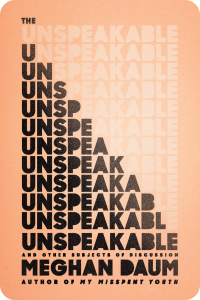
I’ve seen Meghan Daum’s name around for years. This much I knew: Gen-X, student debt, a sudden move to Nebraska, hates carpet. She has a reputation as a self-absorbed, TMI-based confessionalist—the Old Media precursor to Lena Dunham.
Though it’s silly to compare two women simply because they work in the same field (or have any other superficial commonality, for that matter), I find it apt in this case because both writers make people squirm, lash out, and otherwise clutch pearls. Like Dunham, Daum attacks the most interesting and sensitive aspects of the subject at hand. Unlike Dunham, Daum doesn’t really utilize the tropes that have come to define the mass-marketed nonfiction of adventurous younger women—namely sexual encounters and taking pop culture very, very seriously.
I started with The Unspeakable, which was released in November 2014 to widespread acclaim. Much of its publicity focused on “Matricide”—a recounting of Daum’s mother’s illness and death that left the writer as “relieved as she’d plan to be.” On that note, this is an examination of a fraught, hurtful relationship. One that saw Daum’s mother morph from withdrawn and clearly marginalized housewife to self-promoting drama teacher dripping in jewelry and reeking of panache during Daum’s teenage days…at her high school.
Sound horrifying? And Daum’s deeply-held grievance petty? Yes and yes; and the writer’s forte is working between these two competing—sometimes collaborating—poles to arrive at the landscape that approximates unfurling emotions. Though each word is clearly carefully calibrated, she transmits her raw instinctual reactions in such a way that the corrosion goes down easy.
Another notable essay is “The Best of All Possible Experiences.” Here Daum recounts her relationship with a guy who’s about psychic readings with flashing LED sunglasses and telling people what he’s about. This is a man whom the exacting Daum dated not in her idealistic/hormonal twenties, but her mid-thirties. She makes it clear that he and other less-than-suitable suitors served as muses for her writing and her life, and she simply had no intention of marrying before checking off a long list of professional and personal accomplishments.
Two of the essays would benefit from more ambition. “Honorary Dyke” details her penchant for short hair, female acoustic rock, having a dog, and mildly flirting with a lesbian writer. “On Not Being a Foodie” seems to have been stolen from Andy Rooney’s archive. Heirloom tomato ketchup? No, thank you; Heinz does me just fine. Chanterelle mushrooms? What the hell kind of fancy talk is that? Though, like Daum, I must agree that the word “foodie” should be banished.
After The Unspeakable, I quickly devoured the rest of Daum’s bibliography. My Misspent Youth (2001)—her breakout essay collection—is an astonishingly realized compendium of youthful ambition, regret, and judgment. The Quality of Life Report (2003) is an unbelievably light, unmemorable novel that chronicles the life of a Manhattan-to-Midwest transplant that occasionally scratches the surface of Daum’s talent. Life Would Be Perfect If I Lived in That House (2009) details Daum’s lifelong obsession with hardwood floors and Persian rugs and all that this casually superior sensibility implies.
Daum is the product of artistic and socioeconomically ascendant parents who journeyed from the hinterlands of southern Illinois to the self-actualized dendrites of NYC known as northern New Jersey. Yet she yearns for an existence just beyond the grasp of American Gentilewomen everywhere—cerebral revolutions, family gatherings that don’t involve football, the privilege of mentioning philosophers without being asked, alarmed, where you heard of such a thing. Perhaps there are multiple roads to this destination but I can’t think of any apart from faking an accent (namely Russian, French, or Received Pronunciation) or strategic romances. Daum eschews my former suggestion and goes firmly for the latter in the brilliant “American Shiksa,” the crown jewel of My Misspent Youth and the representative Daum experience.
It’s an essay about many things. For example: we northern Europeans know we’re genetic arrivistes but are occasionally convinced that sports posters are art. Mostly, it made me think of a quote by one Madonna Louise Veronica Ciccone, child of the Midwest, relentless cultural adventurer, and stern practitioner of Received Pronunciation: “I wasn’t rebellious in a conventional way. I wanted to be somebody.”
That quote summarizes Daum—her fitful pride, vacillating priorities, and, above all, her commitment to having a full life to show for all of it at the end.
How to Be Parisian Wherever You Are
By Anne Berest, et al.
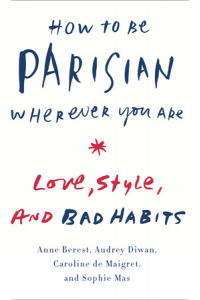
American women are endlessly, obsequiously intrigued by their French counterparts. It’s become a horrible cliché: How are they so dexterous with scarves, unfailingly stylish, unafraid of aging, and—most pressingly—bad-assed? They are the cool yin to the yippy yang of American women. They are our shadow selves, our perennially cool older sisters.
Whether it’s the product of a more personal, flexible culture or is mere mystique, French women seem to have an unshakeable sense of self. This certainty is much more elusive to the American of the species. It’s not surprising that it would be difficult to construct a narrative in a country that prides itself on its cowboys, generals, and flinty industrialists—three paths historically unavailable to women. So we examine this identity vacuum and try to mechanically create it through books ranging from Reviving Ophelia and In a Different Voice to Nice Girls Don’t Get the Corner Office and Act Like a Lady, Think Like a Man. Conversely, French women seem to know and relish their worth. She’s not trying to be everything to everyone; she’s trying to be something to herself.
It turns out that French and American women have quite a bit in common: a gross imbalance of contributions and power. According to the World Economic Forum, American women rank first in professional and technical representation in the workplace, yet are fifty-fourth out of 128 in political representation, a scary sixty-second in health and survival, and a grimace-inducing sixty-fifth in wage equality. The picture is different but similarly unjust for French women, who rank first globally in educational attainment and health and survival, yet are twentieth in political representation and an abysmal 126th in wage equality.
If the publishing industry can offer any clues, American women deal with this cognitive dissonance by doing more, leaning in, and shouldering ever more responsibilities and unattainable expectations, while their French counterparts seek balance through self-affirming forms of escapism—buying a chic bag, sneaking a cigarette, taking a lover—or at least that’s what they tell us poor simps to do.
Which leads me to How to Be Parisian Wherever You Are. It’s knowing, refreshing, and it made me laugh. The advice runs the gamut from taking care of your spirit and cultivating your mind to developing your lying skills and avoiding people. It’s like the perfect cappuccino, the right amount of froth and jolt. One is good, two are dangerous. No, no, that’s too safe and too annoyingly European. The book was like a two-hour conversation with an eccentric, outrageous, slightly deranged yet highly astute friend who has your best interests at heart, but whose own life involves making and withstanding questionable decisions. The essence is a wonder, the substance a separate compartment that is, thankfully, entirely her own.
On Immunity: An Inoculation
By Eula Biss
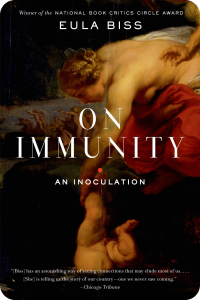
As an expectant mother, Eula Biss becomes alarmed by the skepticism that surrounds vaccinations, particularly in her affluent, artistic social group. Feeling overwhelmed by and underprepared for parenthood, she tasks herself with extracting the truths within a debate charged by a uniquely American cocktail of individualism and class.
Biss—a writing professor at Northwestern—immerses herself in discovery through mythology, science, and her undying faith in the power of etymology to distill concepts that have been diluted by history and assumption. During the process she’s taken in by pride and her own privilege, and finds her way out through debates with her physician father and ethicist sister, and the sobering influence of research.
This heady approach seamlessly transfuses Biss’s obsession, doubts, and epiphanies to the reader. The result is a highly original and personal book that excavates the most pressing global issues through the most personal lens.

